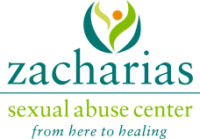For a lot of families in the United States, August brings the start of a new school year. Students return to the all too well known routine of hitting snooze on the alarm clock and rushing to the bus stop. Some will start their educational journey beyond high school and begin college courses away from home for the first time. There are endless new opportunities and adventures. Unfortunately, this time also brings higher rates of violence.
The Red Zone
What is ‘The Red Zone’?
“The Red Zone is the period of time between mid-August and Thanksgiving Break where statistically more than 50% of campus sexual assault incidents occur” (PAVE). This is a time when students, especially freshmen, are most vulnerable. A new environment, independence, a party scene, and pressure to fit in, mix and create risky conditions. Freshmen may want to prove themselves worthy of joining a particular fraternity, sorority, club, or sports team.
26.4% of undergraduate women, 6.8% of undergraduate men, and 25% of undergraduate non-binary students have experienced sexual assault during college (PAVE). Sororities and fraternities also have their ‘rush’ events in the red zone time frame, when freshmen decide which Greek life group they want to join. Hopefully, that group will accept them. While Greek life is not a requirement, it is part of the typical American 4-year college experience.
Hazing
What is hazing?
Hazing is defined as, “Any activity expected of someone joining or participating in a group that humiliates, degrades, abuses, or endangers them, regardless of a person’s willingness to participate” (StopHazing). Hazing can happen anywhere, like high schools, colleges, the military, jobs, sports, and clubs.
Stop Hazing references their 2008 research study stating, “73% of students involved in social fraternities or sororities experienced behaviors meeting the definition of hazing in order to join or maintain membership in their group. The most common hazing behaviors included participating in a drinking game (53%); singing or chanting in public in a situation that is not a related event, game, or practice (31%); drinking large amounts of alcohol to the point of getting sick or passing out (26%); being awakened at night by other members (19%); and being yelled, screamed, or cursed at by other members (18%).”
While many campuses have officially banned hazing rituals and most states have laws against it, students still engage in this behavior. Hazing can happen to anyone, regardless of age, gender, sexual orientation, ability, or race. In recent years, hazing usually involves the consumption of alcohol. For example, being forced to drink an entire bottle of vodka quickly. This can lead to alcohol poisoning which is potentially life-threatening. Several students have died from hazing rituals while they were trying to be accepted by their peers. According to Chloe Appleby, Hank Nuwer found that there have been at least 105 reported hazing-related deaths since 2000 (Appleby, 2022).
Bullying and cyberbullying are two methods hazers can use which can lead to mental distress and thoughts of self-harm or suicide. This type of hazing is easier to hide. Hazing can also take the form of more blatant physical or sexual violence. At first, it is possible to not even realize that hazing is happening; maybe there was only a slight embarrassment or humiliation in front of a group. Before you know it, that can escalate to physical abuse or forced sexual acts. After the humiliating, degrading, hazardous incidents, it can leave one feeling ashamed, embarrassed,
and scared.
Reporting
What do I do if hazing happens to me? What if I see it happen to someone else?
Remember that assault is never the victim’s fault, and you are not alone. Schools and communities have resources available for those experiencing hazing. Most college campuses have a resource center with contact information on their official website as well as counseling services. Reporting is the first step, even if it is intimidating. If you see someone show signs of alcohol poisoning from a hazing incident or there is an emergency, call 911 immediately. To report a hazing incident, call the national hazing hotline at (888)-668-4293, or your campus line.
Conclusion
To recap, hazing can happen to anyone at any time. There are resources to support you if you experience hazing in any form. Rates of sexual violence increase during the red zone. As the school year nears, please take care of yourself! If something you experience feels wrong, don’t hesitate to reach out to the resources available to you either on campus or off.
References
PAVE: Promoting Awareness Victim Empowerment (2020). https://www.shatteringthesilence.org/
Stop Hazing. (2023). Hazing: The Issue. https://stophazing.org/issue/
Olivia Stueben
ZCenter Staff
August 2023

